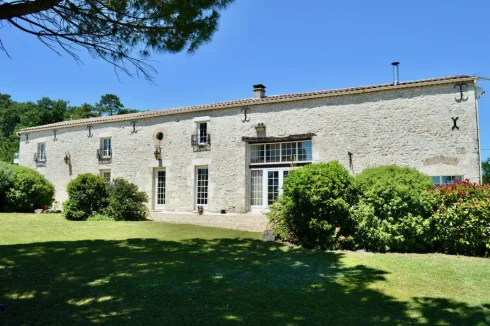Health Cover Social Charges and French Pensions
Tuesday 08 January 2013
Obtaining a French retirement pension could mean you lose your S1 health cover and pay more in taxes than you receive in pension income.
Although those who retire to France are not entitled to a French State retirement pension, if you start a business or take salaried employment you can earn such an entitlement through the social security (national insurance) contributions you pay.
However, when you finally decide to retire, prior employment or business activity in France by EEA nationals can have implications on the nature of your health cover and the social charges you will pay.
This is because if you are in receipt of a French retirement pension you become the responsibility of the French State for the purposes of health and social security rights.
That being the case you would not be eligible for an S1 (formerly E121) certificate of health cover from your home country. The S1 would otherwise give a retired person health cover in France through the reciprocal relationships that exist within the EEA.
The issue is governed by EC Regulations (EC) No 883/2004 and (EC) No 987/2009, which state that if you are in receipt of a State Pension from the country in which you are resident that by itself passes responsibility for health care (and administration of all pension rights) over to your host country, despite the fact that you may also be in receipt of a pension from your country of origin.
In relation to those in receipt of a State Pension the Regulations state:
For the right to benefits in kind (healthcare), the competent State, which bears the cost of the benefits, is: the Member State of residence, if the person concerned is in receipt of a pension from that State entitling him/her to benefits in kind (even where the person concerned is in receipt of pensions from one or more Member States)....
Now, in practice, it makes very little (if any) difference to the nature of the health cover you receive, as S1 health cover is provided on the same terms as French nationals.
Nevertheless, it does have tax implications, for those with S1 cover escape the payment of social charges on their pension income, whereas this is not the case for those in the French health system.
Accordingly, on retirement, those with a French pension will be liable for social charges at the rate of 7.1% on all their pension income, including pensions from outside of France, where these are not otherwise exempt under a double taxation treaty, ie government service pensions.
There is some relief for those on modest incomes, for a reduced rate of 3.8% is payable by those who pay less than €61 in income tax (and around half the population in France pay no income tax), while those whose total income is below the level that would make them liable for the taxe d'habitation are completely exempt from the payment of the social charges on this income.
In addition, not everyone who starts a business will obtain pension rights; if this is the case, then on retirement you would obtain health cover through the reciprocal S1 arrangements, provided you were in receipt of a State Pension from your home EEA country.
The income needed to earn an entitlement to health cover does vary by the type of business activity (and thereby insurance fund) through which you are covered, but as the recent article we published on the Pension Rights of Auto-Entrepreneurs made clear, there are not inconsiderable turnover requirements necessary for those with this business tax status.
Now, it is beyond the scope of this article to delve into the operation of the complex pension system in France (we will leave that for another occasion), but as there are minimum income and duration requirements to obtain entitlement it is likely that, in the vast majority of cases, those who enter the system over the age of 50 would only be entitled to a small pension, if any.
Accordingly, if you are likely to be worse off by taking receipt of your French retirement pension due to the social charges that will arise on all your pension income, then what are your options?
Well, the first step must be to try and establish just what is likely to be the level of your French pension and compare that to the additional social charges you are likely to pay.
You can ask your pension fund in France for an estimate of your pension, although with the innumerable problems that have beset the Régime Social des Indépendants (RSI), the main insurance fund, an early response should not be anticipated.
If the result of the comparison is not to your liking then one solution is simply not to take receipt of the French pension!
The French system does not actually oblige you to take the pension, and there is always the option of deferral in the event your personal circumstances or the tax regulations change.
The difficulty with this approach is that under the above EU regulations you are supposed to make application for both your home and host country pensions from the country in which you last lived and worked. They are then responsible for processing both pension applications and administering payment of your pensions. In practice the Members States have yet to get their act fully together on unified cross-border pension administration, but over time that is bound to change.
Now there is no reason why you cannot make application through the French authorities and indicate by a covering letter that you are do not wish to apply for a French pension, only the pension from your home country. It seems highly unlikely to us that the French authorities would insist you take French pension, although it is always possible they may be reluctant to process your application for your home country pension.
Nevertheless, even if your application is accepted by your Caisse there remains some risk as to your eligibility for an S1 from your home country once administration of your pension had passed into foreign hands. The UK Department of Work and Pensions has stated to us that until such time you take receipt of your French pension you would remain entitled to an S1, although we have not received written confirmation from them.
So the other option is to simply apply direct to your own home country pension authority, making no reference to any previous employment in France. If you are not seeking a French pension then disclosure of French employment may well be considered facultative. The guidance notes from the UK DWP merely state that, 'We need to know about any time you have lived or worked outside the United Kingdom. This is because if you have paid into the social security system in another country, it may count towards your State Pension.'
Whichever approach you take, in the case of a couple where only one of them has worked in France, no requirement exists for the non-working spouse to making application through the French authorities for their own home country pension. Their pension arrangements would be unaffected by EU regulations. By extension, this would also grant them access to an S1, and thereby exemption from social charges on their pension. You would normally receive an application for a State Pension four months before you reach the age of retirement.
We would be very interested to hear from you about your own experiences of this issue. You can contact us at [email protected]
Thank you for showing an interest in our News section.
Our News section is no longer being published although our catalogue of articles remains in place.
If you found our News useful, please have a look at France Insider, our subscription based News service with in-depth analysis, or our authoritative Guides to France.
If you require advice and assistance with the purchase of French property and moving to France, then take a look at the France Insider Property Clinic.





